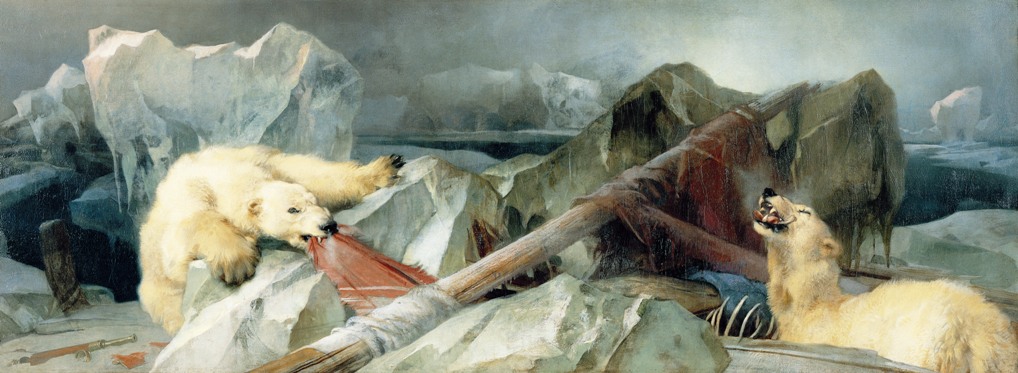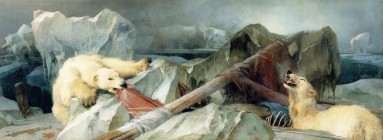A letter by Henry James to his mother, five months before ending his European travels and moving back to the United States. Any resemblance to real people is purely intentional.
Siena, Villa Scacciapensieri
November 23rd, 1869
My darling Mother,
You last heard from me from Firenze and tho' I had not mentioned it at the time I was keen on submitting myself to another train, another town, ripe with Italian memories for the picking. Here I am. The scent of yellow roses wafting around to my small table, carefully ensconced behind a walled garden of ivy, is auspicious.
The villa’s owners have hired a gardener to sculpt a large-sized topiary. They asked me—I should only guess they asked me because scarcely any other guests leave their rooms for breakfast—what animal shape it might take. It was a very good thing to be asked, not because I have a stake in this green animal one way or the other, but because hardly anyone speaks to me in Italy (as you know imposed silence during travel does not bother me, but it has been nearly a year). To my surprise I liked being asked to talk in the midst of my not talking. So I heard myself say ‘how about a dog’ in Italian, and I heard their excellent locution of thanks back to me. Perhaps they had the impression that I took inspiration from the coffee-colored Alsatian that buries its head in its paws beneath the garden canopy at the inception of the midday sun. Quite the contrary—I found that creature to be melancholic in the way one never expects of well-bred dogs.
Might you remember Ruskin’s essay on ‘vital beauty’? I mustn’t be counted on to recite what I remember of it by heart. Yet what he describes as Landseer’s clear execution of the features of the dog, the way the crimson and jade dance off each other’s tonality to give a crisp texture to the overall expression—what does he say about expression ‘in the highest degree’? That vitality is what I remembered when I suggested the topiary be shaped like a dog, but I fear this gardener is doomed. The little I remember of Boston landscaping and its capacious strokes of genius does not dilute the fact that nothing can touch the diabolical enchantment of painting. Landseer's was sealed with thoughts, with thinking. This guesthouse topiary will be beautiful but struck mortally dumb and lucklessly fixed. Pity.
That tea with Mrs. Huntington and her daughters I last described left me full to the brim with the anxiety of returning to Boston society. To be sure, I had locked that feeling away with the letter I sent and disallowed myself from remembering Cambridge altogether until I was on the railway edging toward Siena's cavernous walls. Anyone staring at my face framed in the little window at that moment would have glimpsed a man filled (quite literally!) with shadows of an absent presence. Amidst old Europe one is awash in the idea of America as a new fatherland. I would never willingly shirk my loyalty to the latter, except on account of the nation's insistence on dull manners and language. Perhaps not even then. But should I find America agreeing with my senses again I will know it is owed to a squelched desire to visit Italy again.
I do at least look forward to the belated winter of Cambridge’s late spring—that winter that elongates over exactly two seasons. That the cold takes ‘going out’ out of one’s hands and storming oneself in is as much a social custom there as the little huddled walks along a pebbled strada here gives me great relief. The low, quiet moan of a New England winter is reassuring.
I should never want to give the impression that I have embraced the wry American value of assigning Europe aesthetic supremacy. Far be it from me to signal a nostalgia that may or may not exist. I am never more unsettled about my own allegiance (or inclination) as I am during happy travel. The question of where and how to live, tho'...
While I enjoy America (a sense of bewilderment always accompanies this enjoyment) it behoves me to sharpen my skills of observation like an Englishman. A more shallow national orientation than the former it would be difficult to believe. How odd that intellect, movement and esprit de corps mark the same nation that boasts a thin veneer of what it calls culture. From this perch in Italy it appears even more lacking. The American's fears of financial indisposition, compromised hygiene and loneliness make even less sense.
I feel as though I allow myself a great deal of deception about Cambridge and Boston when I am there but I have begun to accept this disposition toward overlooking one's joy as part of my American inheritance. Funny I should speak to almost no one in all of Italy and still feel vibrant but be surrounded by savants there and hurled toward social vulgarity.
24th, Wednesday. As is my custom I kept the envelope open so that I might enfold a rounded response but the silence coming from your direction has me caught in a trapdoor. I know you crave more news and I regret the scarcity.
Mammy, my dearest, bestow my embraces on Willy and my father but firstly and heavily upon yourself.
Faithfully yours, as ever
THY HENRY jr.

